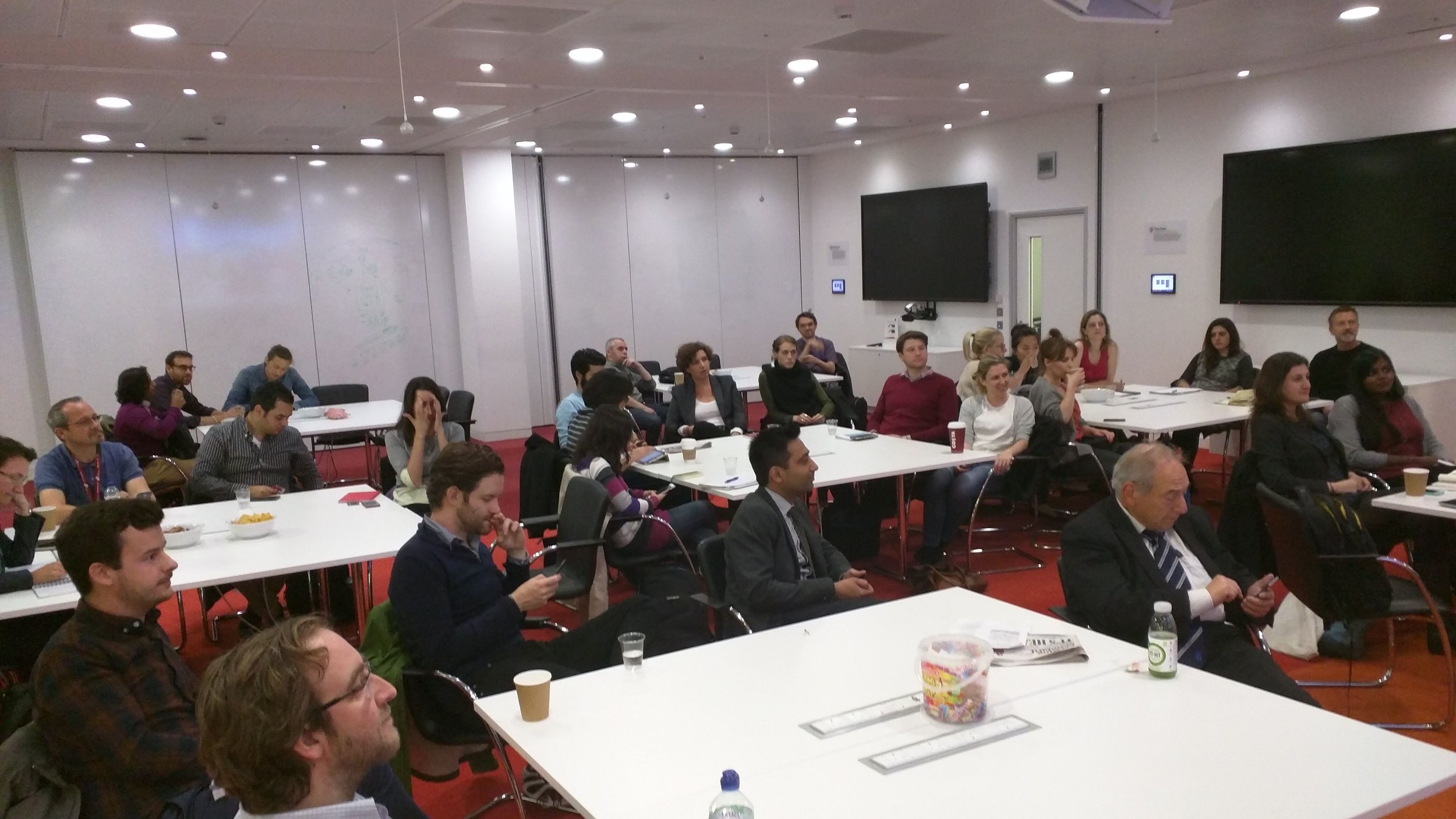#ICTDEthics - Tuesday 31 January Meetup Details
Well just when you thought 2017 had gone morally bankrupt, ICT4D is here to save your soul with a bit of #ICTDEthics! Our latest Meetup has all the trappings of a development worker's new year resolutions, with a bit of an academic twist.
I am very excited to announce that our London-based ICT4D Meetups are back starting on Tuesday 31 January at 6:30pm. This month's location is shortly TBC, but we are proud to welcome back Tony Roberts in full force as one of the co-organizers!!! At the same time we must sadly bid farewell to Chisenga Muyoya, who provided us with a year of support as she completed her MSc in ICT4D at Royal Holloway. Chisenga returns to Lusaka this Friday and we hope to see her again in the near future!
Returning to the event, we have an exciting workshop being designed and implemented by Dr Dorothea Kleine of Sheffield University and Dr Andy Dearden of Sheffield Hallam University. The workshop, building off of work done at the ICTD2015 Conference in Singapore, seeks to explore a set of ethical guidelines for ICT4D. In their own words:
"Many different actors, including academics, NGOs and businesses carry out research in ICT4D/ICTD. In recent years there have been calls for a set of agreed minimum ethical standards for ICT4D/ICTD research. There is a global #ICTDEthics initiative underway and in this interactive anc participatoryworkshop, the two UK-based facilitators seek the input of members of the ICT4DLondon MeetUp community into the joint process of shaping these minimum ethical standards."
My first thoughts about this were to ask how an #ICTDEthics might be different from the Principles of Digital Development report that was launched in February 2016. This report was released to much fanfare and even featured in the ICTWorks newsletter. While the report asks questions about ethics once digital development projects transition to enterprises, and about how to ethically implement digital development projects where privacy and security concerns are involved, apart from four very brief mentions of ethics in the report, there was scant work done in exploring conceptual and practical ethics-linked considerations that should be made when engaging in digital development work.
“There’s still a view that technology will solve everything. But there’s a growing understanding that technology also comes with challenges with real challenges and ethical quandaries.”
Quote from an informant for the Principles for Digital Development report
This quick content analysis of the report is highly probelmatic because as practitioners and academics alike surely have seen, taking care to "do no harm" in digital development practice is never straightforward, nor is a simple box-ticking exercise sufficient in terms of reflecting on whether ethical digital development practice has been exhibited. The fact that ethics isn't made an important digital development principle in itself indicates that much work remains to be done here. There are myriad and complex considerations to be made relating to the context of implementation as well as to the contexts where digital development projects and programs are dreamed up. Moreover, how and where the funding for these projects and programs are sourced can present ethical dilemmas: Where private sector funding is being used, are these funds being directed to the good of the people or to further enhance corporate agendas? At the same time, we might even ask if in the process of enacting digital deveopment, given practitioners' and academics' motivations for continued/stable salaries and/or (further) funding to do other digital development work, is there is a good framework in place which ensures that this group of actors does not unintentionally inflict its own harm through acts of self-preservation that might benefit them but not necessarily the stakeholders they are supposed to be serving?
What if there was a system whereby digital development practitioners and academics were able to peer-review each other's work, with ethics analyses prioritized? Sounds onerous, to be sure, but could be worth it if it means we work to mitigate or eliminate the ethical issues that might arise in digital development, particularly when working with vulnerable populations.
I really hope that these ethical questions and more are addressed during this #ICTDEthics workshop since the Principles for Digital Development raised expectations in this area with its title but in the end failed to deliver. I look forward to continuing my own contributions in this space, starting with a recent article I published in Girlhood Studies about ethical considerations to be made when doing digital research with girls, particularly research that involves surveillance. And Drs Kleine and Dearden are compiling their own list of ICT4D ethics resources, which will be shared at this workshop and soon in other conference forums.
What about our readers? How do you apply ethical practice in your ICT4D work? Please sound off below!

